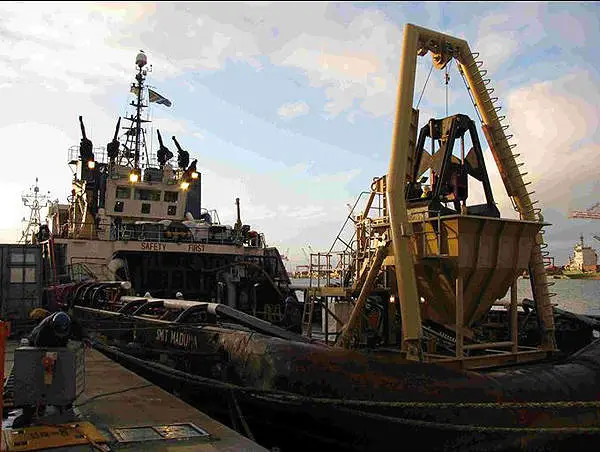Namibian Marine Phosphate said on Tuesday that steps are being taken to move the Sandpiper marine phosphate project offshore of Namibia in accordance with a High Court order from last year. Namibian Marine Phosphate (NMP) announced that the High Court has confirmed the continued validity of Namibia Marine’s mining license until June 30, 2021, and that an independent environmental assessment practitioner has been appointed to manage the application and assessment process for the proposed Sandpiper project.
Also Read: Namibia’s Namasira Police to Get Better Infrastructure
Sandpiper’s application and public meeting information have been published in media, and public meetings will take place in Windhoek on Wednesday and Walvis Bay on Friday. Stakeholders, interested and affected parties, and stakeholders were urged to register their information at public meetings or on the Environmental Compliance Consultancy page.
Details of the Sandpiper marine phosphate project
The Sandpiper marine phosphate project of NMP is located approximately 60 kilometres off the coast of Namibia and 120 kilometres southwest of Walvis Bay. The license encompasses a 2 233 km2 region with sea depths ranging from 180 m to 300 m. Mawarid Mining, an Omani-registered entity, and Havana Investments, a Namibian-registered entity, own 85% of NMP. The project includes 132 million tons of reserves grading 20.41% phosphorous pentoxide and 1.69 billion tons of mineral resources grading 18.94% phosphorous pentoxide. A definitive feasibility study (DFS) on Sandpiper in 2013 envisaged a three-million-tonne-per-year phosphate rock concentrate project with a grading of about 28% over 20-year initial mine life.
According to Namibia Marine Phosphate, the planned project will, directly and indirectly, employ more than 600 Namibians for construction and operations in Walvis Bay. Last year, the Chamber of Mines of Namibia determined that every new mining job creates seven extra new employment in the economy. Sandpiper is estimated to produce 4 200 employment due to that multiplication. According to the business, marine phosphate mining and processing might potentially provide Namibia with the phosphate concentrate needed to build an integrated fertiliser sector. The organisation’s commitment to responsible commercial, social, and environmental development was reaffirmed.

Leave a Reply